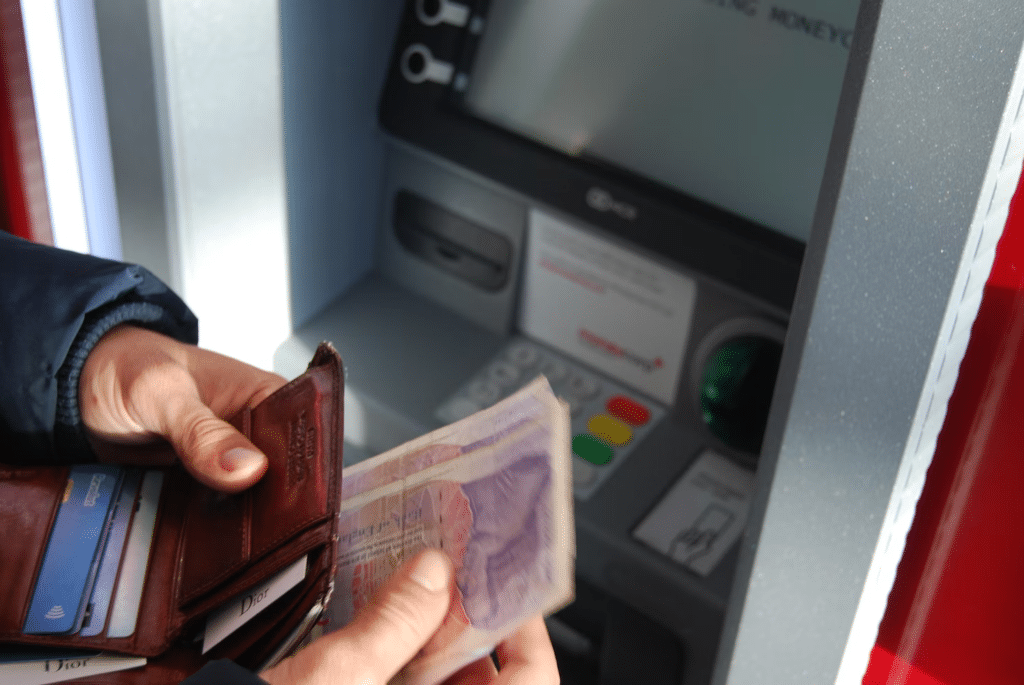Importance Of An Emergency Fund
Life is full of surprises and more often than not usually has a financial penalty attached to them! As of August 2022, almost ‘one in three households in Great Britain’1 reported that they could not afford to cover an unexpected 850 British expense, with this statistic on an upward trend.
What is an Emergency Fund?
An emergency fund is an easy-to-access pool of money that can be quickly accessed to absorb financial shock in an emergency. Typically an emergency fund should cover 3-6 months of living expenses however funds as little as £500 can go a long way.

Can’t I just use a credit card or payday loans instead?
Credit cards are a valuable and convenient tool but they do have traps. The biggest of which is the high compounding ~20% APR interest rate where you could easily be paying £200/yr in interest for a £1000 line of credit. If you’re living month to month and unable to pay the full amount off in a timely manner it can quickly spiral out of control becoming an emergency in itself.
Payday loans are even worse and can have an APR over 1500%, that’s not a typo!
As COVID has shown, some emergencies can drag on for years.
Other reasons to avoid relying on a credit card as an emergency fund include:
- Some merchants may not accept credit cards for goods or services
- Prohibitively expensive or unable to use to withdraw cash
- Depending on the nature of the emergency the credit card service may be offline, ie Natural Disaster
- Credit Card issuer may freeze your line of credit: political instability, loss of employment or change of circumstances
- Cash is King, in a wide-scale emergency hard currency such as Cash will always be preferred over card
Common Types of Emergencies
Everyone’s definition of an ’emergency’ will differ and there may be some overlap with a ‘Rainy Day’ fund which is intended for more expected costs. Emergency funds are often used for:
- Unemployment: Being fired or having the option to walk away from a toxic or dangerous workplace situation
- Unexpected Medical Issues: Inability to work or lack of sick leave, out-of-pocket expenses, caring for a dependent
- Replacing critical appliances or Emergency Building Repair: Broken Freezer, burst water pipe, failed heating system
- Unexpected Car Repairs: Major mechanical failure (engine/gearbox), smash repair, high service bill, paying insurance excess, replacement of primary vehicle
- Emergency or Natural Disaster: Flood, Earth Quack, House Fire, large-scale industrial accident
- Victim of Crime: Replacing damaged or stolen property, engaging a lawyer
- Forced Relocation: Eviction, maintaining employment, escaping a relationship or abuse, political unrest
- Politics: Change of immigration laws or status, lockdowns, persecution
- Unexpected financial obligations: Tax bill, bill shock (energy price hikes), supplementing income during times of heavy inflation while finding higher-paying work
Storing your emergency fund?
Your exact personal circumstances will and needs to be taken into consideration.
As a rule, your emergency fund should be split over at least 2 places, with at least 1 of those places being stored as cash.
You should have enough cash on hand to immediately leave the country or cover 7 days worth of emergency accommodations and expenses. For an individual holding £2000 in a mix of larger and smaller denominations is not a bad idea. Do be aware that holding large amounts of cash is a risk as it will not be covered for incidents including fire or theft, nor does it earn interest.

Larger amounts of this emergency fund should be in a bank, ideally linked to online banking accessible from your phone. This has the advantage of being able to pay bills online and transfer funds electronically. History has shown that during times of unrest banks can freeze accounts or impose restrictions including strict withdrawal limits.
While gold, cryptocurrencies and shares are important to hold, they may be difficult to liquidate at short notice and should not be relied upon for an emergency fund.
It won’t happen to me, this is a waste of time
I genuinely hope this is the case and you never run into financial issues. The reality is we live in a crazy world where actions can have a lasting global impact.
Forbes has an excellent article on this which explores the monetary ramifications of Covid in the United States where large segments of the population went into Lockdown with employees losing their primary income stream due to both layoffs and company closures.
Nearly 40% of people who had emergency savings prior to March 2020 dipped into those funds during the pandemic […] Of the people who used their emergency funds during the pandemic, 73.3% of respondents spent half or more of their savings.
Forbes (Lisa Rowan) – Here’s How The Pandemic Shattered The Emergency Savings Rule Of Thumb
Without a secondary income stream or at the minimum an emergency fund you could easily find yourself in trouble as even efficient social welfare programs can take weeks to start.

Don’t be scared to ask for help
Admitting and accepting help from others is one of the hardest things you can do. If you find yourself in trouble please don’t do it alone and consider seeking support from charities such as Food Banks.
Many organisations exist to help those going through rough patches without judgement or shame.
Below are some resources to get started
Resources:
- Trussels Food Bank: https://www.trusselltrust.org/get-help/find-a-foodbank/
- Salvation Army: https://www.salvationarmy.org.uk/map-page
- Government Universal Credit: https://www.gov.uk/universal-credit/other-financial-support
Many service providers such as telcos, banks and utilities have financial hardship programs, if you have trouble paying your bill please reach out to them and see what can be done.
Wrap Up
The significance and definition of an emergency fund will vary between individuals however the importance of having at least some cash tucked away for the unexpected is the same.
Do you have an emergency fund or differing ideas on one? Share your thoughts in the comments below